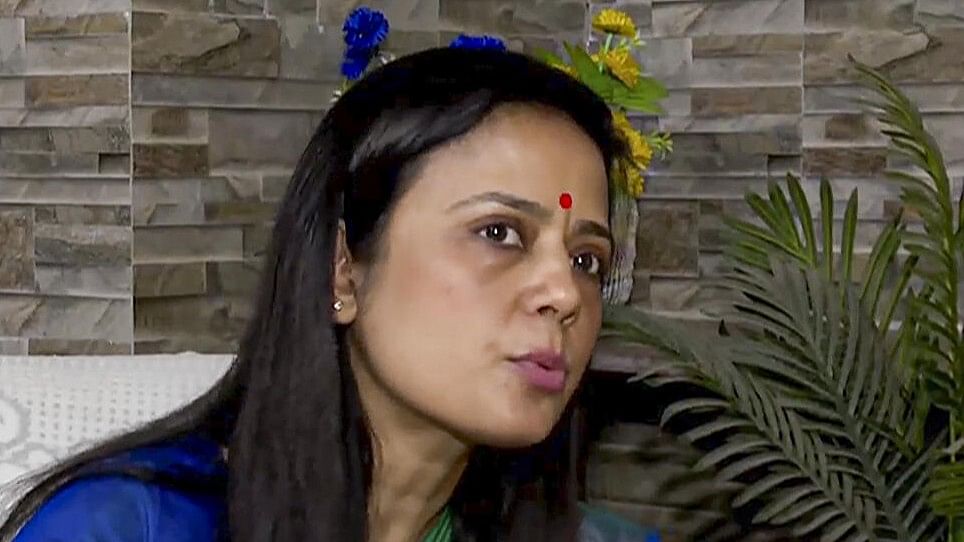
Mahua Moitra.
Credit: PTI Photo
With its recommendation for the expulsion of Trinamool Congress MP Mahua Moitra, the Ethics Committee of the Lok Sabha, in which the Bharatiya Janata Party (BJP) has a majority, has acted in a partisan manner to the extent of muzzling a voice that has been critical of this Union government. It’s open season on critics of the Prime Minister and those close to him, due procedure and principles of natural justice be blown.
Let’s examine some of the events surrounding the recommendation for Moitra’s expulsion from the Lok Sabha on account of receiving cash for asking questions, before getting to the ‘merits of the case’.
On September 22, BJP’s South Delhi MP Ramesh Bidhuri abused Bahujan Samaj Party (BSP) MP Danish Ali in the vilest possible language on the floor of the House, even referencing his faith. He should have been expelled. If he hadn’t been protected by parliamentary privilege, he would have been cooling his heels for hate speech.
He was referred to the privileges committee of the lower house, but skipped summons to appear before it on October 10. Speaker Om Birla ‘warned’ him of strict action, but he is yet to be summoned again. Ali, the complainant, has not been called to present his case. Bidhuri gets a pass.
In a curious turn, Ali, a member of the ethics committee, is on its radar for ‘unruly conduct’, and spreading rumours. Ali has fallen afoul of the regime for pointing at procedural lapses in Moitra’s inquisition, while his own serious complaint is in limbo.
News reports also show that Moitra has written to the Lok Sabha speaker questioning the selective leaks of the ethics committee’s draft report to the media.
Moreover, committee head Vijay Sonkar (obviously of the BJP) reversed the usual order by calling the complainant, BJP MP Nishikant Dubey first for submission of evidence, instead of the accused. Recall, the privileges committee called Bidhuri first and has kept the proceedings in suspension after his non-appearance.
The case against Moitra rests on allegations made by Jai Anant Dehadrai, a Supreme Court lawyer and Moitra’s former friend. It was supported by a plain-paper affidavit by Dubai-based entrepreneur Darshan Hiranandani, who is alleged to have made the payments for questions asked by Moitra. Though Dehadrai was examined by the committee, Hiranandani was not summoned. His being in Dubai hardly amounts to a procedural exoneration.
Most critically, according to news reports, while recommending Moitra’s expulsion from the Lok Sabha, the majority in the ethics committee admitted that it did not have the technical wherewithal to unearth the money trail and asked the government to probe it. If that is indeed the case, then the committee is in no position to arrive at a determination.
Among other infractions, only Sonkar examined Moitra; no other member of the committee was allowed to do so. As the Krishnanagar MP pointed out, the sexist, personal, not to mention irrelevant, questions directed at her devalued the exercise, causing not just Moitra but Opposition members on the committee to walk out.
In other words, as far as the cash-for-questions issue is concerned, the ethics committee has recommended a member’s expulsion on charges it has admitted it is unqualified to examine. Due process, indeed.
As far as the allegation of sharing login ID and password is concerned, Moitra has admitted that they were shared with Hiranandani, but stressed that the “NIC has no rules as to who can have your login.” How serious an offence is this will be known once the committee submits its final report.
However, the ethics committee has not provided any clarity by making the unproven and so far unprovable, by its own admission, cash-for-questions issue the focus of unethical and criminal conduct.
The history of parliamentary proceedings doesn’t exactly support such unilateral action which has all the appearances of the denial of natural justice.
The last time the issue came up, in 2005, the money trail was established via a sting operation: the evidence was in the public sphere. Nevertheless, the report of an enquiry committee was debated in the House and put to vote. Despite having earlier condemned the conduct of 10 MPs — five BJP, three BSP, one Rashtriya Janata Dal, and one Congress — BJP members walked out.
The process was transparent, but when you’re doing a hatchet job, opacity is a requirement.
(Suhit K Sen is author of ‘The Paradox of Populism: The Indira Gandhi Years, 1966-1977’.)
Disclaimer: The views expressed above are the author's own. They do not necessarily reflect the views of DH.